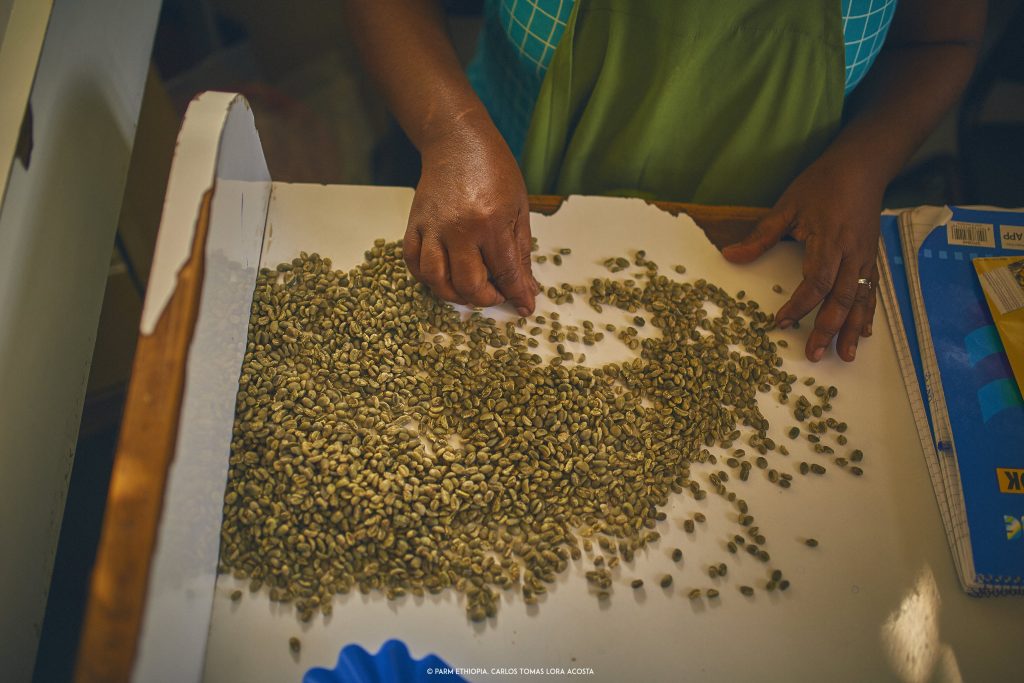Seed-Related Assistance in Fragile Contexts: Lessons for COVID-19 Response

How will the COVID-19 pandemic impact the world’s smallholder farmers? For agricultural communities already facing droughts, locust invasions, civil unrest and climatic shocks, the current outbreak is just one more in a long list of food production threats. Vulnerable farmers are now watching markets close, supply chains halt and restrictions appear on their ability to move and work. These new constraints are likely to affect the accessibility, availability and maybe even the quality of seeds in many places, with potentially profound ramifications for household food security. Can possible seed-related stresses be mitigated if pivotal actions are taken sooner, rather than later?
As the humanitarian community mobilizes in response to COVID-19, the ways in which it intervenes in these threatened seed systems demands further attention and due caution. If not well-informed, seed interventions may lead to greater harm and could even increase farmers’ vulnerability for many seasons to come. What new challenges are emerging? What viable actions might be considered? What features need to be given special focus in planning and implementation? What lessons can we draw from prior crises to inform our actions?
These questions will be part of a webinar promoted by the Strengthening Capacity in Agriculture, Livelihoods, and Environment (SCALE) program. It will be a practical, farmer-centered conversation sharing key guidance and lessons for seed system interventions in the COVID-19 response. The session will:
- The likely impacts of the pandemic on farmers’ access to seeds;
- The critical questions humanitarian workers must ask before intervening in seed systems
- Essential good practices for seed-related responses, including considerations for seed distributions and linking to cash and voucher assistance; and
- The distinct (often novel) hurdles posed in seed assistance and COVID-19 response
Shawn McGuire
Agricultural Officer (Seed Security), FAO
Dr. Shawn McGuire works to support seed systems for smallholder farmers, particularly in high-stress contexts. Along with L. Sperling he has helped establish Seed Systems Security Assessments (SSSAs) as a rapid tool for understanding seed systems constraints and for designing effective responses. After 15 years as a Senior Lecturer in International Development (University of East Anglia, UK), in 2016 he joined FAO in Rome, and leads their work on Seed Security. He has authored 30 articles or book chapters.
Dieudonne Baributsa
Associate Professor of Entomology, Purdue University
Dieudonne Baributsa has more than 20 years of experience in international development. Dr. Baributsa currently leads efforts to reduce postharvest storage losses on grains and seed in more than 35 countries in Sub Saharan Africa, Asia and Latin America. He has been involved in seed interventions in conflicts areas and during the Ebola crisis in West Africa. His broad areas of interest include agricultural technology development/dissemination and ICT innovations for technology scale-up.
Julie March
Acting Division Director for the Preparation, Strategic Planning and Mitigation (PSPM) Division for the USAID Office of U.S. Foreign Disaster Assistance (OFDA) and Team Lead for Food Security & Livelihoods
Julie March has promoted new approaches to seed system thinking in humanitarian work through technical support and operational research activities. An ecologist by training, she focuses on sustainable agriculture and farming systems of smallholder farmers. She has been working for or with USAID for the last 18 years.